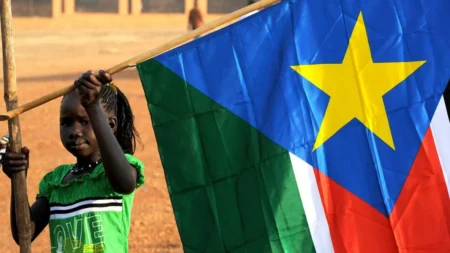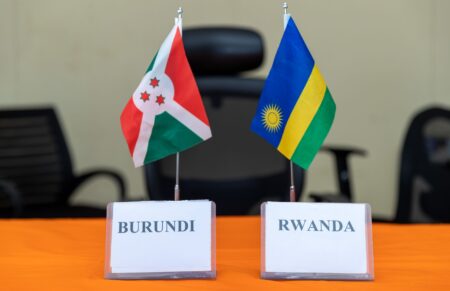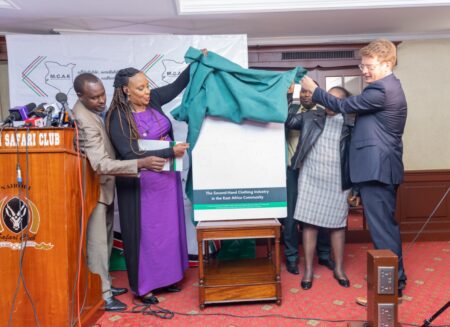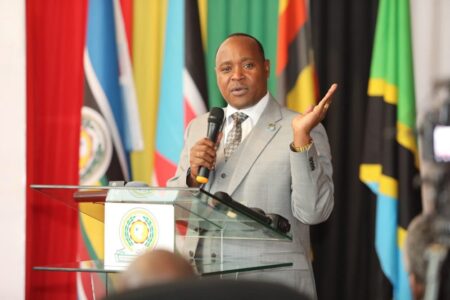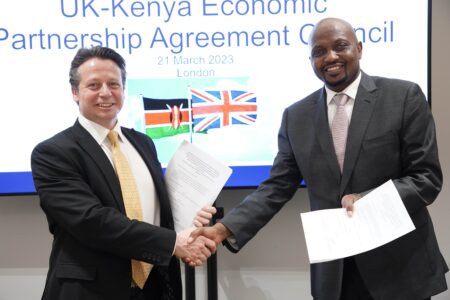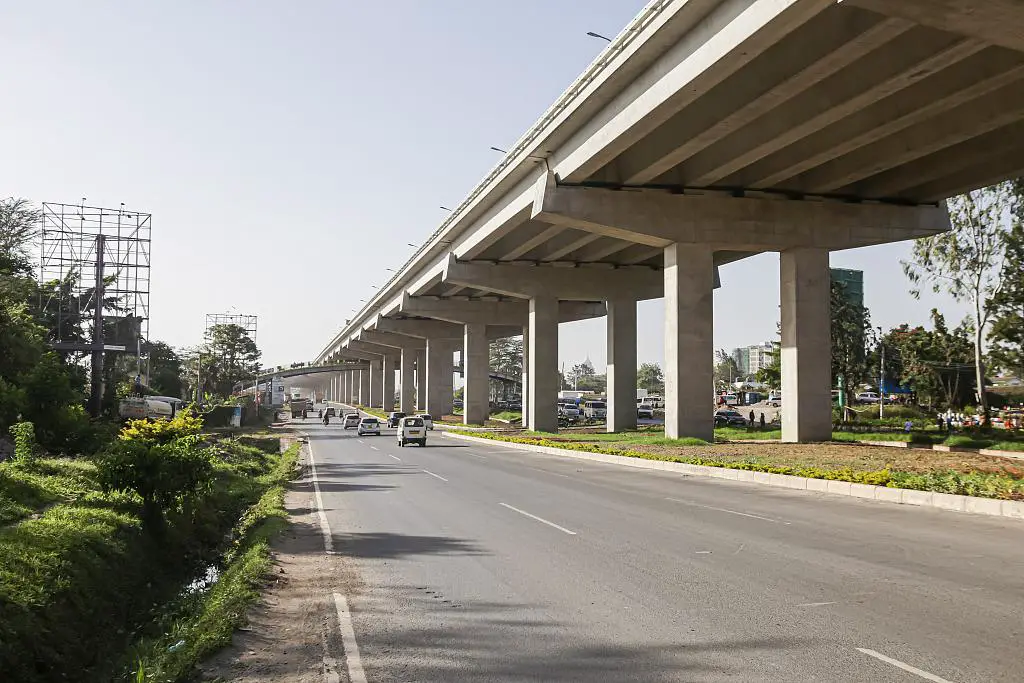- Africa’s new dawn: the rising role of digital and AI in agriculture
- Can Dangote Refinery Transform Africa Energy Ambition
- Gallup Survey: 80 per cent of Kenyan Workers Are Disengaged and Seek New Opportunities
- Madagascar Man Freed from 5KG Tumor After 15-Year Struggle
- How women in Africa are perceived and treated
- Sugar consumption in Kenya to Increase to 1.23 Million Tonnes
- Can Somalia and Turkey Oil deal Bring Change in Somaliland
- Remittances to Kenya dropped to $371.6 million in June, marking a six month low
Browsing: East African Community
- The IMF has identified South Sudan, Burundi, and the DRC as East African Community member states poised for significant economic growth in the 2024–2025 period.
- GDP growth in Burundi is projected to increase from 4.3 to 5.4 percent and in the DRC from 4.7 to 5.7%.
- Kenya leads regionally with a projected GDP of $104 billion, ranking 7th overall among the continent’s largest economies.
The economic outlook for East African Community member states South Sudan, Burundi, and the Democratic Republic of the Congo (DRC) is poised for significant economic growth in the 2024–2025 period. This prognosis by the International Monetary Fund (IMF) comes despite these nations grappling with conflicts, marking them as among the most fragile in the region.
In its latest regional economic outlook report for Sub-Saharan Africa, the IMF forecasts a noteworthy 1.2 percent gross domestic product (GDP) growth for South Sudan, from 5.6 to 6.8 percent, despite …
- Burundi and Rwanda relations have hit a new low, with the Burundian government suspending ties with Rwanda, closing the Rwandan border.
- The diplomatic row between Burundi and Rwanda has a complex history, with tensions dating back to the colonial era and continuing into the post-independence period.
- The border closure further strains relations between Burundi and Rwanda, as well as the larger East African Community (EAC).
Burundi and Rwanda relations have hit a new low, with the Burundian government suspending ties with Rwanda, closing the Rwandan border, and “chasing” out Rwandese nationals.
Burundi has accused its neighbour of supporting rebel attacks in the region. The move comes after Burundi’s President Évariste Ndayishimiye accused Rwanda of backing the Red Tabara rebel group, which orchestrated an attack near Burundi’s western border, where 20 people lost their lives, including women and children.
“We have closed our borders (with Rwanda), anyone who tries to …
The whereabouts of Joseph Kony, the infamous leader of the Lord’s Resistance Army (LRA), remains one of the most enduring mysteries in international justice and African politics. Despite extensive efforts to capture him, Kony continues to evade justice, with his exact location a subject of much speculation and few definitive answers.…
A recent report has revealed that the ban on second-hand clothing, also known as mitumba, might not enhance Kenya’s textile industry as previously anticipated. The report commissioned by the Mitumba Consortium Association of Kenya (MCAS) on the Second-Hand Clothing Industry in the East Africa Community has cautioned against protectionism towards importing second-hand clothing.…
- Weaker currencies make the fight to tackle inflation harder given Africa’s dependence on imports.
- According to the IMF, the average depreciation for the region since January 2022 is about eight percent, but events vary by country.
- Ghana’s cedi and Sierra Leone’s leone depreciated by over 45 percent. An analysis by The Exchange Africa shows the Kenya shilling has shed about 18.4 per cent since May last year.
Most African currencies have weakened against the US dollar, fanning inflationary pressures across the continent as import prices surge, IMF now says. This, together with a growth slowdown, leaves policymakers with difficult choices as they balance keeping inflation in check with a fragile recovery.
According to the IMF, the average depreciation across Africa since January 2022 is about eight percent though events vary by country. Ghana’s cedi and Sierra Leone’s leone depreciated by more than 45 per cent.
An analysis by The Exchange …
- Grey’s expansion in the East African Market follows $2 million seed funding of the West African company.
- Grey CEO AIdorenyin Obong says the Kenya office will help the firm navigate its planned operations across East African Community.
- The company has also privately launched Grey Business, a borderless business banking for startups.
Nigerian Fintech startup Grey has picked Kenya as its East African hub as it expands operations into the largest economy in the East African Community. The move follows $2 million seed funding the West African company raised as it eyes Uganda and Rwanda in the near future.
Already, the firm’s platform is live in Tanzania and Kenya with over 300,000 users. Grey CEO AIdorenyin Obong says opening offices in Kenya will help the firm navigate the markets in the East African Community.
“Kenya’s Diaspora remittance is very vibrant as remittance inflows to Kenya have increased tenfold in the last …
- The programme, being implemented with the support of the World Customs Organisation (WCO), is aimed at bolstering the region’s private sector by encouraging participation in both regional and international trade.
- Intra-regional trade within the East African Community (EAC) is on an upward trajectory, standing at $10.17 billion as of September 2022 while total trade with the rest of the world stood at $62 billion, highlighting a need for further improvement. This represents a 20 percent share of Intra-trade to global trade.
- The digitisation of the CETs will see the region’s business community — exporters and importers- gain access to trade information from the private sector in international trade.
The East African Community (EAC) secretariat has embarked on the digitising its Common External Tariffs (CET) a move that is billed to encourage the countries’ participation in regional and international trade.
The CET is meant to protect the member countries of the …
- Kenya’s Cabinet Secretary for Investment, Trade, and Industry Moses Kuria is leading a high-powered government delegation to London for the Economic Partnership Agreement and Investment meeting.
- Kenya is leveraging on the talks to intensify pitches to investors.
- This is in an effort to net at least $10 billion in Foreign Direct Investments (FDIs) this year.
Kenya’s Cabinet Secretary for Investment, Trade, and Industry Moses Kuria is this week leading a high-powered government delegation to London for the Economic Partnership Agreement and Investment meeting, that Kenya seeks to intensify pitches to investors.
The government is aiming to net at least $10 billion in Foreign Direct Investments (FDIs) this year in a plan mooted by the Kenya Investment Authority.
The forum is being held through a Ministerial Council meeting on the Economic Partnership Agreement, which was scheduled to kick-off on Tuesday, March 21, 2023 in London.
“The forum will provide a platform …
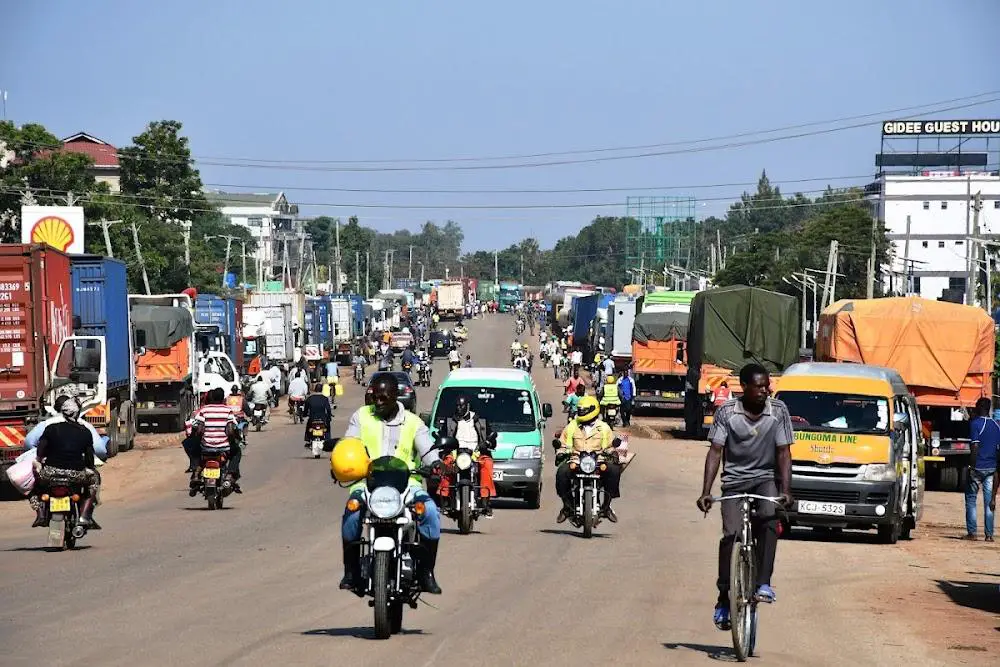
–
Uganda border of Malaba. It is one of the businesses in the East Africa
region
Should a common currency in the EAC come to fruition, the trade will be fueled by a reduction, albeit limited, in transaction costs, the elimination of exchange rate risk and region-wide price harmonisation – all of which will undoubtedly be underpinned by policy incentives.
- Monetary Union is the third stage towards EAC regional integration, capped through Political Federation.
- Considering individual economies are relatively small, currency harmonisation might play a significant role in improving intra-African trade.
- The IMF, through its chief Christine Lagarde, previously warned the EAC not to rush into a currency union, pointing to the issues faced in Europe.
Interest in regional integration, including monetary, in Africa has remained intense over the decades since independence. Consequently, various regional groupings have been formed. Those initiatives were stimulated by the generally small size of individual economies. This led to a desire to promote economies of scale in production and distribution. A …





